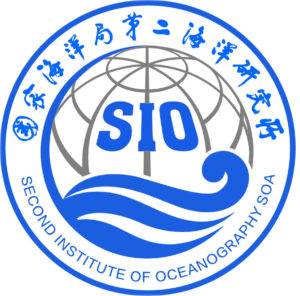
Convenor
- China Deep Ocean Affairs Administration
- National Deep Sea Center, MNR
- Second Institute of Oceanography
Overview
“Digital DeEP-sea Typical Habitats (Digital DEPTH)” is one of major scientific plan in the field of deep-sea habitats initiated under the framework of the United Nations Decade of Ocean Science for Sustainable Development (UN Ocean Decade). It was officially approved by the Intergovernmental Oceanographic Commission (IOC) of UNESCO on World Oceans Day in 2023 and is open to the world. The programme is operated by the China Deep Ocean Affairs Administration and led by chief scientist, Dr. Jiabiao Li, from Second Institute of Oceanography. Digital DEPTH focuses on 4 types of deep-sea habitats: seamounts, mid-ocean ridges, continental slopes and abyssal plains, which are vulnerable to human activities and global changes. The programme successfully hosted the western Pacific International Expedition. The workshop will help to discuss the update for the programme, emphasize the importance of international collaboration, thereby promoting the science-based approach to achieve deep-sea conservation and sustainable development.
Program Objectives:
The “Digital DEPTH” workshop is a groundbreaking initiative that delves into the typical deep-sea habitats. These unique ecosystems are not only essential to the planet’s biodiversity but also increasingly being vulnerable to human activities and global environmental changes. The Digital DEPTH is designed to strengthen our capacity to observe, simulate, and map these deep-sea environments, ultimately fostering a harmonious balance between deep-sea conservation and sustainable development. The successful western Pacific international Expedition has attracted scientists from 5 continents and valuable samples have been collected. A consensus has been achieved for exploring the deep-sea habitats to foster a sustainable ocean.
Program
| TIME | AGENDA |
| Opening and Introduction | |
| Part 0. Welcome remarks
· Mrs. Dongmei Tang, China Deep Ocean Affairs Administration, Ministry of Natural Resources, China · Dr. Yinxia Fang, Second Institute of Oceanography, Ministry of Natural Resources, China |
|
| Part 1. Introduction and progress of Digital DEPTH, and International Cruise 2024
· Dr. Jiabiao Li, Second Institute of Oceanography, Ministry of Natural Resources, China |
|
| Part 2. Academic reports and roundtable discussion for 2024 Western Pacific International Expedition (Dr. Xuewei Xu)
· Habitats and inhabitants of the deep-sea: from diversity to ecology to a prosperous ocean world, o Erika Gress, James Cook University, Australia · Research priorities for deep sea habitats, o Dongsheng Zhang, Second Institute of Oceanography, Ministry of Natural Resources, China · Deep-sea exploration for biodiversity, o Ruiyan Zhang, Second Institute of Oceanography, Ministry of Natural Resources, China |
|
| Part 3. Introduction of newly adopted and future projects under Digital DEPTH (Dr. Rong Wang)
· Junhui Shi, Zhejiang Lab, China · Bassem Jalali, Institut National des Sciences et Technologies de la Mer, Tunisia & Second Institute of Oceanography, Ministry of Natural Resources, China · Yang Liu, Ocean University of China, China
|
|
| Part 4. Vision for Digital DEPTH by international collaborator and advisory (Dr. Peiyuan Qian)
1. Amr Hamouda, National Institute of Oceanography and Fisheries, Egypt 2. Peiyuan Qian, Hong Kong University of Science and Technology, China 3. Suzan El-Gharabawy, National Institute of Oceanography and Fisheries, Egypt 4. Jianwen Qiu, Hong Kong Baptist University, China |
|
| Part 5. Discussion on future plan in 2025 and beyond
· Dr. Xuewei Xu, National Deep Sea Center, Ministry of Natural Resources, China |
|
| Part 6. Closing remarks
· Dr. Jiabiao Li, Second Institute of Oceanography, Ministry of Natural Resources, China · Mrs. Dongmei Tang, China Deep Ocean Affairs Administration, Ministry of Natural Resources, China |
